★★½
“Olivia Newton-John not included.”
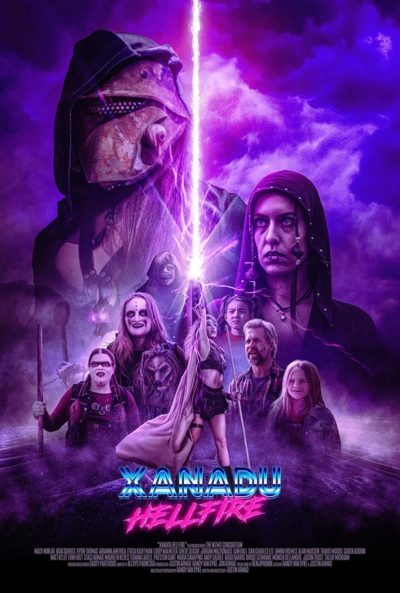 I went into this braced for it to be terrible, having sat through the same film-makers’, largely irredeemable Bloodsucka Jones vs. The Creeping Death. Fortunately, this is considerably better. Still very cheap and flawed, yet is at least aware of its own limitations, and tries to work inside them (albeit with mixed success). It’s about eight-year-old Ruby (Surrec), who lives with her single parent Dad, Steven (Thomas), and is obsessed with comic-book heroine, Xanadu Hellfire (Minear). For her birthday, Ruby wants to stage a ritual from the comic, and bring Xanadu back from her post-apocalyptic future. Dad humours her – at least until the ritual works, and Xanadu arrives, with wicked stepsister Raven (America) on her heels.
I went into this braced for it to be terrible, having sat through the same film-makers’, largely irredeemable Bloodsucka Jones vs. The Creeping Death. Fortunately, this is considerably better. Still very cheap and flawed, yet is at least aware of its own limitations, and tries to work inside them (albeit with mixed success). It’s about eight-year-old Ruby (Surrec), who lives with her single parent Dad, Steven (Thomas), and is obsessed with comic-book heroine, Xanadu Hellfire (Minear). For her birthday, Ruby wants to stage a ritual from the comic, and bring Xanadu back from her post-apocalyptic future. Dad humours her – at least until the ritual works, and Xanadu arrives, with wicked stepsister Raven (America) on her heels.
From here, things progress more or less as you expect. Xanadu has to adapt to life in contemporary society (I did laugh at her going to Ruby’s school, where the battle-bikini clad warrior princess is described as “an exchange student from Canada”). She bonds with Ruby, partly because she reminds the moppet of her absent mother. Conveniently, Xanadu and Mom take the same size in clothes, as we find out during a dress-up montage. Raven shows up, and “wreak havoc” as she and her sidekicks search for Xanadu. Xanadu, Ruby, Dad, some of Dad’s loser friends from high-school team and Ruby’s best friend, Becky, team up to take on Raven and Co.
It’s a super mixed bag of elements that are fun, and stuff which borders on the cringe. Sometimes, both are in close proximity. For example, Minear looks really good twirling her staff. But as soon as she goes into hand-to-hand combat, she slows down to about one-tenth of the speed. While I admire the avoidance of hyper-kinetic editing, the lengthy shots only exacerbate this problem. The comedy which doesn’t hit, misses by a mile, such as an extended joke about characters walking about in slow-motion. It doesn’t help that Ruby’s lines never sound like something an adorable eight-year-old would say e.g. “Eat shit, Frankenhooker!”. Yet some elements are genuinely funny, such as the way Raven’s minions team up with the local Goth girl. This leads to the exchange, “I thought you were dead?” “Only on the inside…”
It’s at its best when obviously not taking itself seriously. For instance, Becky going up to a minion before the final battle, and saying, “I like your make-up. Do you need a hug?” Sadly what follows is far from the climactic conflict the movie needs, and at 107 minutes long, this is in serious need of significant trimming. There was also surprisingly little difference between the post-apocalyptic world and the modern one, though this might have been a deliberate joke. Or it might not. The ending teases a sequel, which I’m all in favour of, providing it stops the makers from doing another Bloodsucka Jones movie. For I would be at least cautiously interested in seeing Xanadu’s further adventures, as despite the flaws here, there is genuine heart at its heart.
Dir: Justin Armao
Star: Macy Minear, Aria Surrec, Ryon Thomas, Arianna America





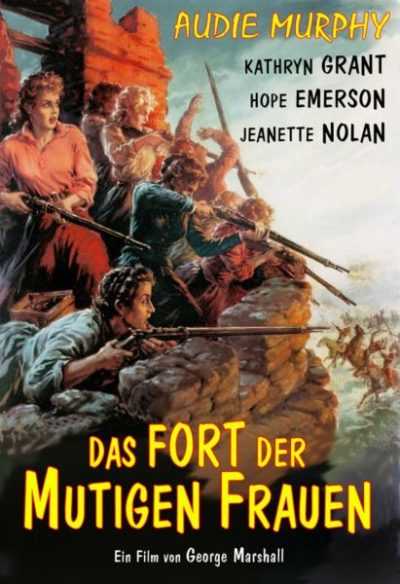 This is one where you need to take the era into account. Made in 1957, this was based on a short story from a couple of years earlier: “Petticoat Brigade” by Chester William Harrison. It’s very much an Audie Murphy movie – and understandably so, since the man was a bona fide hero, being one of the most-decorated American combat soldiers in World War II, before he became an actor. But the fifties was not a decade known for strong, independent female characters in Hollywood Westerns. We’ve covered a few:
This is one where you need to take the era into account. Made in 1957, this was based on a short story from a couple of years earlier: “Petticoat Brigade” by Chester William Harrison. It’s very much an Audie Murphy movie – and understandably so, since the man was a bona fide hero, being one of the most-decorated American combat soldiers in World War II, before he became an actor. But the fifties was not a decade known for strong, independent female characters in Hollywood Westerns. We’ve covered a few: 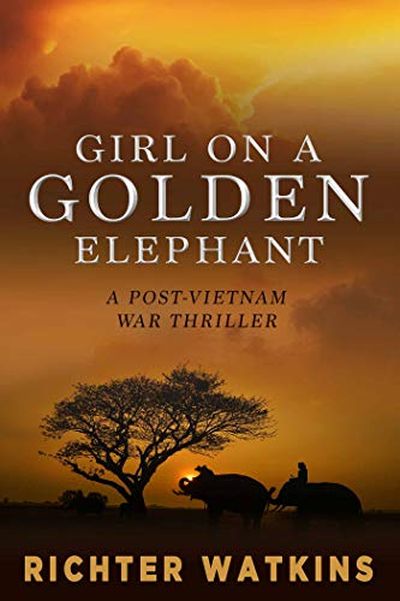 War correspondent
War correspondent  I should be clear, this is not to be confused with
I should be clear, this is not to be confused with  We’ve written about Griselda Blanco before. In particular, we reviewed telenovela La Viuda Negra, which was loosely based on her life and
We’ve written about Griselda Blanco before. In particular, we reviewed telenovela La Viuda Negra, which was loosely based on her life and 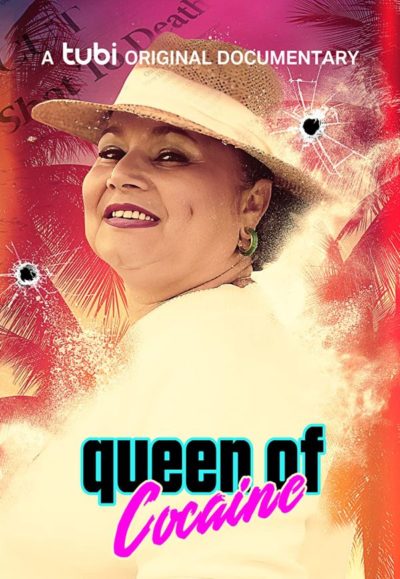 To my pleasant surprise, that’s not the case at all. Obviously, there’s a certain allure here, but it doesn’t needlessly glamourize or condemn its subject, and instead manages to do a good job of painting both sides, and depicting Griselda as a surprisingly complex character. This is particularly clear at the end, when her youngest son – named, amusingly, Michael Corleone – says of his mother, “Yes, it’s a legacy of violence. But she was a woman that had to become savage in a world that wasn’t made for her.” Then Detective Diaz, who headed the Miami task force charged with bringing her down, counters, “We have this bitch from hell who decides she wants to be meaner and more powerful than anybody else… Violence. Arrogance. Greed.
To my pleasant surprise, that’s not the case at all. Obviously, there’s a certain allure here, but it doesn’t needlessly glamourize or condemn its subject, and instead manages to do a good job of painting both sides, and depicting Griselda as a surprisingly complex character. This is particularly clear at the end, when her youngest son – named, amusingly, Michael Corleone – says of his mother, “Yes, it’s a legacy of violence. But she was a woman that had to become savage in a world that wasn’t made for her.” Then Detective Diaz, who headed the Miami task force charged with bringing her down, counters, “We have this bitch from hell who decides she wants to be meaner and more powerful than anybody else… Violence. Arrogance. Greed. 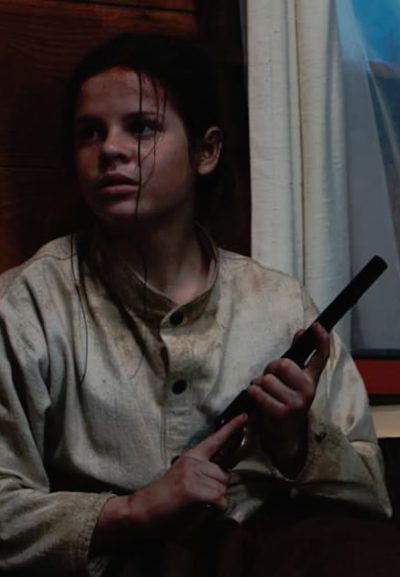 This one does take a while to reach the necessary threshold: probably only truly qualifies for the final twenty minutes or so, though it does talk a good game until that point. Also, it’s a decent enough combination of Western and home-invasion genres to that point, to pass muster. Nothing special, mind you. It just knows its limitations and is careful enough to work within them. It takes place in the Old West. whee Beth (Bernadette) and her twin children, Brian and Irene (Betsy) now live with her new husband, Robert (Krause). The trio appear to have escaped an abusive relationship, and it’s not long after a railroad surveyor pays a visit, before Irene is cheerfully telling him, she’s going t go back and killer her father some day.
This one does take a while to reach the necessary threshold: probably only truly qualifies for the final twenty minutes or so, though it does talk a good game until that point. Also, it’s a decent enough combination of Western and home-invasion genres to that point, to pass muster. Nothing special, mind you. It just knows its limitations and is careful enough to work within them. It takes place in the Old West. whee Beth (Bernadette) and her twin children, Brian and Irene (Betsy) now live with her new husband, Robert (Krause). The trio appear to have escaped an abusive relationship, and it’s not long after a railroad surveyor pays a visit, before Irene is cheerfully telling him, she’s going t go back and killer her father some day.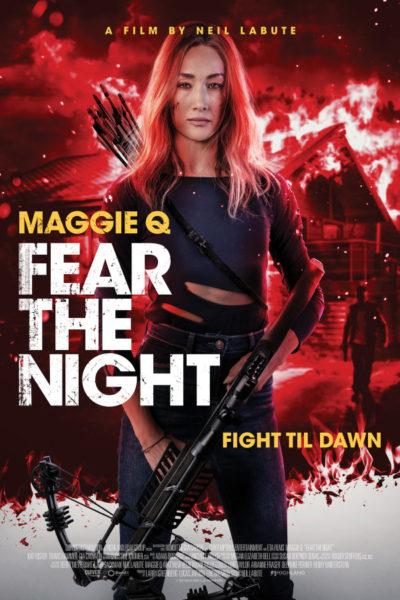 Director LaBute is best known around these parts for his ill-conceived remake of classic horror The Wicker Man, which is generally regarded as spectacularly bad, and is probably best-known for spawning memes involving Nicolas Cage and bees. So expectations going into this were… not high, shall we say. On that basis, the three-star rating is something of a pleasant surprise, though most of the credit for this should got to its star, rather than the director. Tess (Q) is a veteran of the war in Iraq, who is struggling to reconnect to her two sisters. Rose is getting married, and is nice enough that Tess is willing to attend her bachelorette party at the family cabin, deep in the country. But Beth (Foster) is a straight-up bitch.
Director LaBute is best known around these parts for his ill-conceived remake of classic horror The Wicker Man, which is generally regarded as spectacularly bad, and is probably best-known for spawning memes involving Nicolas Cage and bees. So expectations going into this were… not high, shall we say. On that basis, the three-star rating is something of a pleasant surprise, though most of the credit for this should got to its star, rather than the director. Tess (Q) is a veteran of the war in Iraq, who is struggling to reconnect to her two sisters. Rose is getting married, and is nice enough that Tess is willing to attend her bachelorette party at the family cabin, deep in the country. But Beth (Foster) is a straight-up bitch.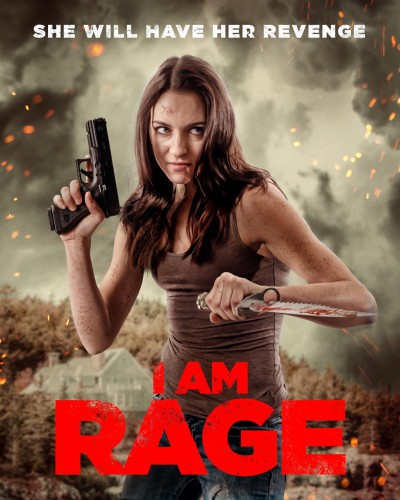 By coincidence, I watched this not longer after the not very good
By coincidence, I watched this not longer after the not very good 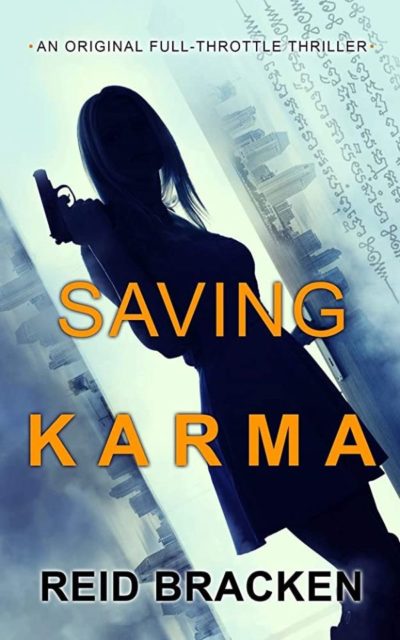 On Amazon, this is subtitled, “A full-throttle Thailand thriller,” but that’s a little bit of a misleading label. The bulk of the story – at least, the bits that matter – actually take place in China. The book itself goes with “A full-throttle thriller throughout Asia,” Except it starts off in the not-exactly Asian setting of San Bernardino, California, where Bree Thomas is just about to graduate. This is despite the problems of her adopted family, who she was sent to live with after her parents were killed in Thailand. She gets a chance to escape it all, in the form of an apprentice program with the Meng Foundation, a charitable group who help refugees around the world.
On Amazon, this is subtitled, “A full-throttle Thailand thriller,” but that’s a little bit of a misleading label. The bulk of the story – at least, the bits that matter – actually take place in China. The book itself goes with “A full-throttle thriller throughout Asia,” Except it starts off in the not-exactly Asian setting of San Bernardino, California, where Bree Thomas is just about to graduate. This is despite the problems of her adopted family, who she was sent to live with after her parents were killed in Thailand. She gets a chance to escape it all, in the form of an apprentice program with the Meng Foundation, a charitable group who help refugees around the world.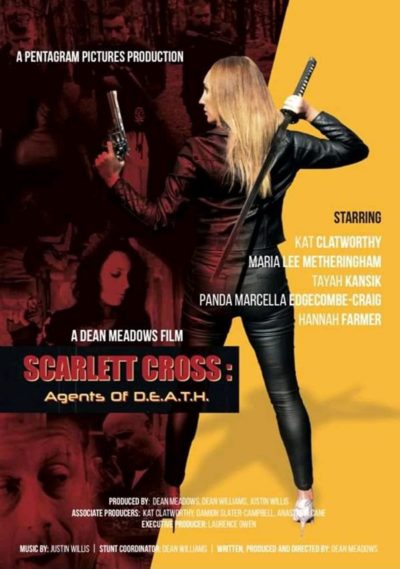 To be honest, I enjoyed this a good bit more than the rating above would indicate – probably another star or so. But I have a particular tolerance for cinema with rough edges, which I know not everyone will share. This is such an entity. I can’t really recommend it, since most people won’t be able to get past the micro-budget anesthetics, which the film rarely bothers even to try and hide. But I could appreciate the obvious passion that went into this. Put it this way, if I had twenty quid with which to make a movie, it could end up looking something like this. Probably not with such a kick-ass poster though.
To be honest, I enjoyed this a good bit more than the rating above would indicate – probably another star or so. But I have a particular tolerance for cinema with rough edges, which I know not everyone will share. This is such an entity. I can’t really recommend it, since most people won’t be able to get past the micro-budget anesthetics, which the film rarely bothers even to try and hide. But I could appreciate the obvious passion that went into this. Put it this way, if I had twenty quid with which to make a movie, it could end up looking something like this. Probably not with such a kick-ass poster though.